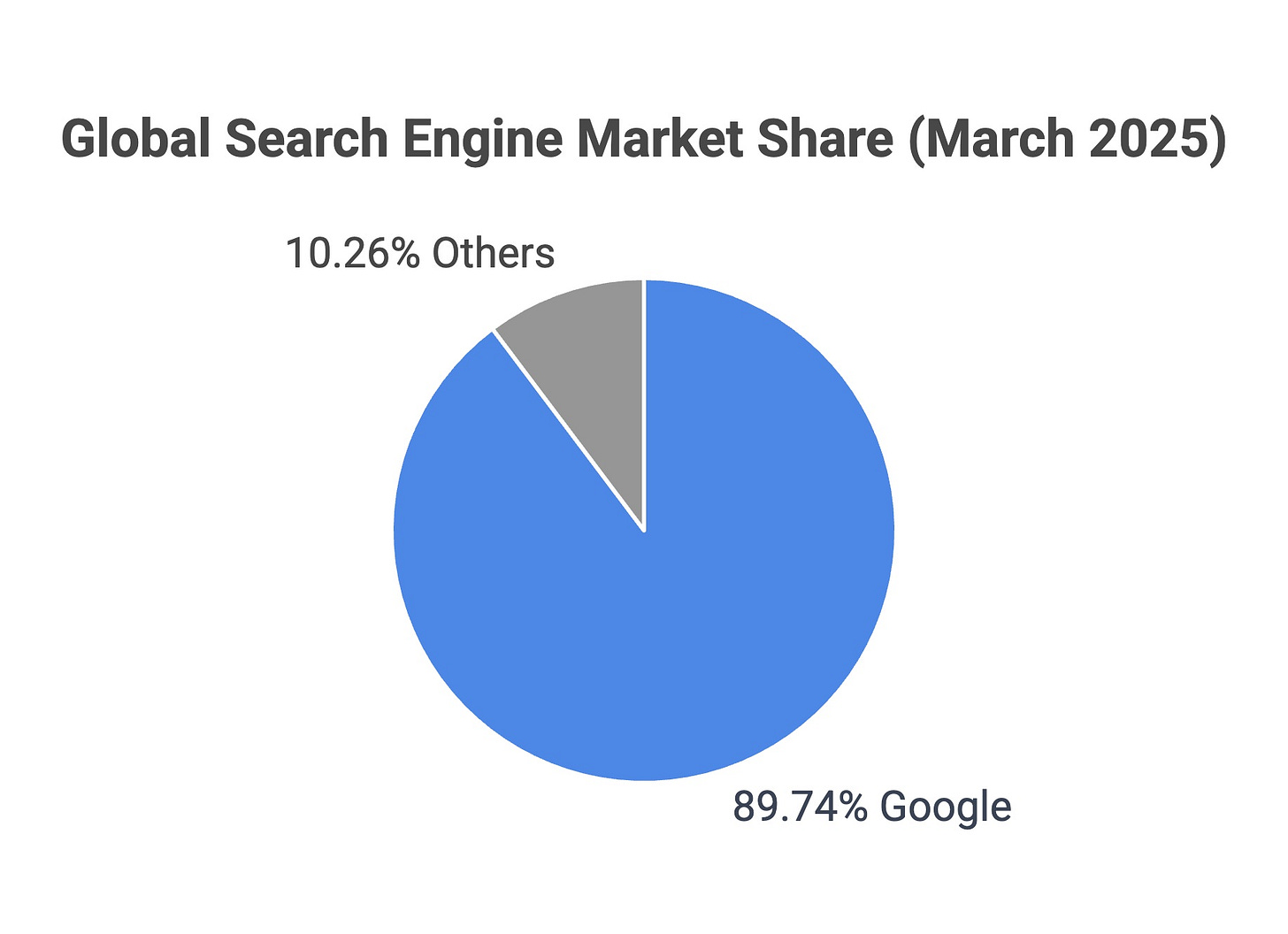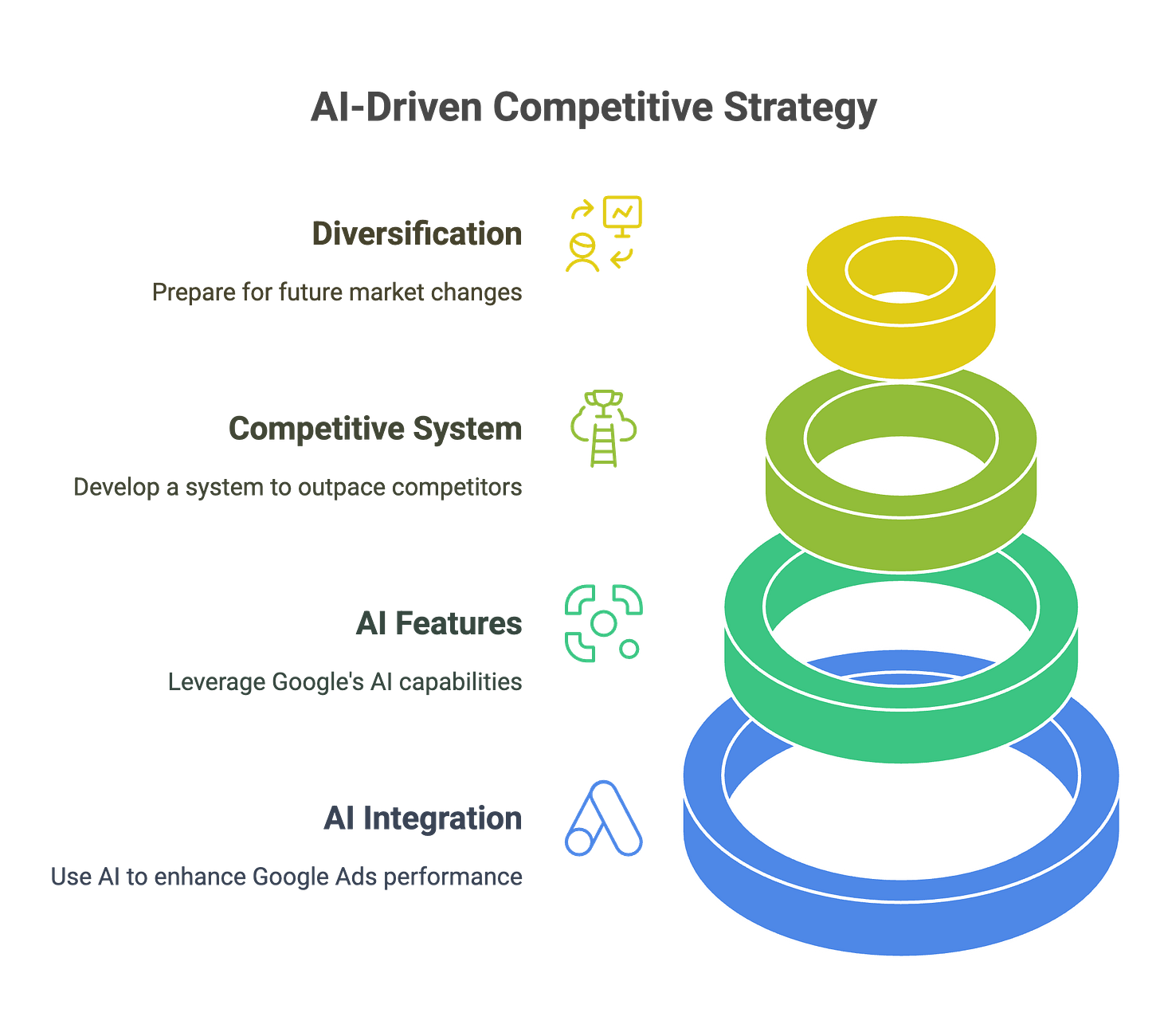Are Google Ads going to die because of AI?
This is the question I keep hearing.
And it’s a fair one.
AI is advancing fast. Tools like ChatGPT are now offering shopping recommendations. Perplexity is building a browser that personalizes everything. OpenAI plans to monetize with ads. So where does that leave Google?
Let’s look at the data:
🔹 Google’s global search share (as of March 2025): 89.74%
🔹 OpenAI will begin rolling out ads in ChatGPT by 2026
🔹 Perplexity's Comet browser is tracking user behavior to deliver hyper-personalized, AI-powered ads
So… is Google Ads dead?
Not even close.'
A quick reality check
I’ve worked in digital advertising for a long time. I’ve heard people declare the death of Google Ads more times than I can count.
I remember:
Analyzing separate paid search accounts for Google, Yahoo, and Bing
Building custom landing pages for desktop vs. mobile
When "the year of mobile" was declared… five years in a row
When Facebook ads were supposed to destroy Google
When voice search was going to kill text ads
And now? It’s AI’s turn to be "the thing that kills Google."
But here’s what has always remained true:
👉 Google adapts, survives, and dominates—by innovating at scale.
Even if regulators break it up (which could happen), smart marketers will continue to use whatever tools remain.
AI platforms are learning what Google already knows
Remember when OpenAI and Perplexity said they didn’t want to use ads?
Now, they’re building ad products.
Because they’ve hit the same wall Google’s founders hit in the early days:
➡️ If you want to build and scale innovation, you need revenue
➡️ Ads—when personalized and relevant—improve the product, not ruin it
AI platforms don’t hate ads.
They just hate bad ads. So do users.
What should marketers do?
Use both. That’s the strategy.
Here’s how to maximize your results using Google Ads + AI together:
✅ 1. Use AI to improve Google Ads performance
AI can dramatically improve your ad efficiency—right now.
Try this:
Use ChatGPT to generate and test multiple versions of ad copy
Use image generation tools (like DALL·E or Midjourney) to create product visuals for Performance Max
Feed campaign performance data into AI to get insights and recommendations faster
Build keyword lists and negative keyword suggestions with AI
Speed up A/B testing ideas for offers, landing pages, and CTAs
✅ 2. Lean into Google's AI features
Google Ads already has AI baked in. Use it.
Tools to explore:
Performance Max: Great for ecommerce and lead gen—let Google’s machine learning find the best placements
Broad Match + Smart Bidding: Still underused, but powerful when paired
Automatically created assets (ACAs): Use Google's AI to generate headlines, sitelinks, and descriptions
Audience signals: Let Google predict who’s most likely to convert
Don’t fight the machine. Partner with it.
✅ 3. Create a simple system to stay ahead of Google + AI competitors
AI is evolving fast—and so are Google's competitors.
Smart marketers don’t just react. They build systems to stay informed.
Here’s a basic system you can set up in under 30 minutes:
1. Set Google Alerts for:
"Google Ads updates"
"OpenAI ad products"
"Perplexity browser advertising"
"AI search trends"
2. Block 20 minutes a day to:
Scan your alerts
Test 1 new AI tool or ad format
Document wins/losses in a shared Google Doc
3. Quarterly:
Audit your marketing mix
Compare spend/performance across channels
Reallocate budget based on what’s working now
This doesn’t have to be complicated.
It just has to be consistent.
✅ 4. Diversify and prepare for what’s next
Even if you’re running Google Ads successfully today, now is the time to explore new channels.
Where to experiment:
ChatGPT plugin ecosystem (once ads arrive)
Perplexity Comet browser (for SEO and future ad integration)
Voice search and AI assistants (like Google Gemini or Alexa)
TikTok’s AI-powered creative tools
YouTube Shorts + Google’s AI-driven video recommendations
The goal isn’t to leave Google—it’s to be ready when the next opportunity hits.
Bottom line:
Google Ads isn’t going away.
But how we use it—and what we pair it with—is changing fast.
If you’re a marketer, the smartest move is to:
Keep optimizing your Google campaigns
Use AI to supercharge your performance
Build a system to stay informed
Stay curious about where new AI platforms are going next
AI won’t kill advertising.
It’ll just make it more intelligent.
And the marketers who adapt first?
They’ll win.







